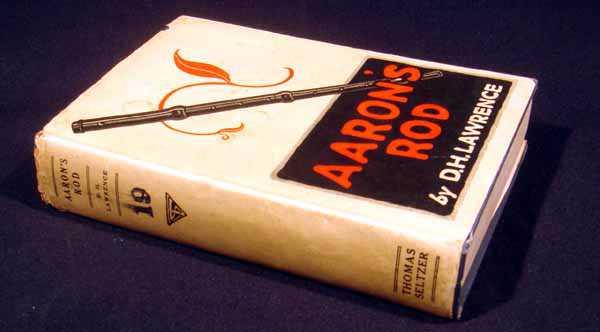Aaron Sissons, the protagonist of Lawrence’s Aaron’s Rod, leaves his wife and three young children to find himself. He’s unsuccessful. The “rod” is his flute, which he plays well enough to earn a modest living. It is also a pun on his cloudy sexuality, and his need to settle his identity is oriented more towards men than women.
Traveling by train across Italy to Florence, Aaron Sisson falls in with two men, Angus Guest and Francis Dekker, gay lovers, sweet, a little dotty, and well-off. During a layover, they have a picnic tea party in their first-class compartment. Aaron, who is traveling third-class, joins them.
So, while Aaron and Francis cis go off for food, Angus gets down his red picnic case to make tea. When they return with packets of newspaper filled with “chestnuts, piping hot, and hard dried plums, and good dried figs, and rather stale rusks, they find Angus just about to drop the tea leaves into boiling water.
Spreading the food on the carriage floor and filling the silver-fitted tea glasses on the floor — “The picnic was in full swing.” Angus sits cross-legged in the Buddha fashion and appears to be in a mystic state. The train conductor, the ticket collector, and a passenger marvel at him, but when Angus calls out “Buon’ apetito,” they slam the compartment door and move on.
Featured Image: First U.S. edition (1922) by Thomas Seltzer. In Exodus, Aaron’s rod is transformed into a serpent that devours all Pharaoh’s serpents; in Numbers, it flowers and produces ripe almonds.
See D.H. Lawrence. Aaron’s Rod. London: William Heinemann Ltd: 1922; Aaron’s Rod; The Cambridge Edition. Edited by Mara Kalnins. Cambridge: University of Cambridge Press, 1988
The novel is autobiographical. I’m not sure who Lawrence’s models were for Angus and Francis, but Rawdon Lilly is a stand-in for himself, Aaron is John Middleton Murry, and James Argyle is Norman Douglas. Aaron’s rod is an allusion to Moses’s brother, Aaron’s walking stick.

